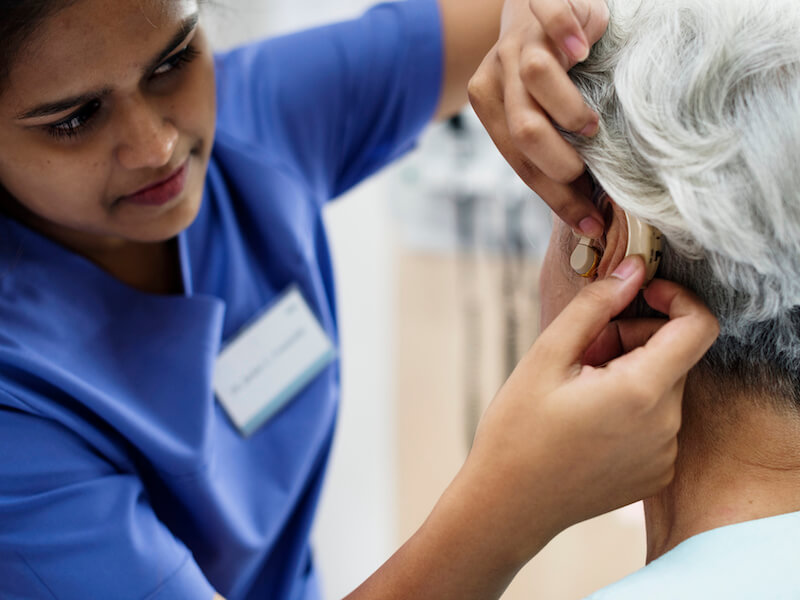
If you have hearing aids but you’re still having difficulty hearing, your hearing aids might require professional repair.
You take good care of your hearing aids. You baby them. Cleaning them daily, you make certain they are snug on their charger when you go to bed.
That’s why it’s so annoying that, suddenly and distressingly, your hearing aids are no longer working the way they should. The good news is, troubleshooting the problem is pretty easy. Keep in mind: preventing damage is your number one task (otherwise replacing them could be necessary).
Troubleshooting Your Hearing Aid
Always consult with your owner’s manual when performing maintenance and troubleshooting as every model of hearing aid can be a bit different. Here are some things you can check on most models:
- Keep your microphone clear: Look for anything obstructing the microphone of your hearing aid. Your hearing aid might sound broken or silent or have feedback if the microphone is blocked.
- Wax buildup: Check for wax accumulation which could be stopping the normal functionality of your hearing aids. Wax accumulates rapidly so even if you have a routine cleaning schedule you still need to pay attention to this.
- Check for noticeable damage: Check if there are any noticeable loose components or cracks around the shell of your hearing aid. Cracks, clearly, could reveal more substantial damage (or allow).
- Check your battery: Even if you’re sure your hearing aids spent the night on the charger, you’ll want to double-check the battery level. If your hearing aid has replaceable batteries, it might be a good idea to check if those batteries are in correctly or if a new one fixes the issue.
Each of these issues will have a unique strategy so check your owner’s manual. In certain cases, you might be capable of performing maintenance yourself. (Your owner’s manual is the best place to start.)
When Does my Hearing Aid Need Servicing?
If your hearing aid keeps malfunctioning after you have performed basic maintenance and troubleshooting, it’s probable that your hearing aid will require professional repair. That may not always seem appealing, after all, you rely on your hearing aid for daily communication (along with dinners with your family, staying current with your favorite Netflix shows, and so on).
However, it’s worth noting that “repair” doesn’t always translate into “mail your hearing aids in” for service and wait a number of weeks. Sometimes, we can fix it while you wait.
Meaning, in some instances, you’ll be able to bring your hearing aids in for professional maintenance and get them back in a matter of minutes or hours (this, of course, depends on the severity of the damage, which is all the more reason to bring it in for repair as soon as you can).
Not all cases can be addressed in house though. A backup pair might be necessary in those cases. An old pair might be able to do an adequate job as a backup so if you have an old pair, bring them in with you. There might even be a loaner set at our office that you can use until you get yours back.
Don’t Put Off Getting Help With Your Hearing Aids
If your hearing aids are beginning to fade, the audio quality is starting to falter, it’s essential to have it repaired.
If you do this you will be more likely to avoid any downtime. Neglected hearing loss can impact your overall health, including your mental health. Moreover, once your hearing aids are ignored in a box somewhere, it’s very easy to pretend they don’t exist, all the while, your hearing progressively worsens.
Your best chance of getting the maximum help from your hearing aids is to keep them functioning at their highest quality. Keeping them clean and charged and if necessary, bringing them in for maintenance is the easiest way to do that.
